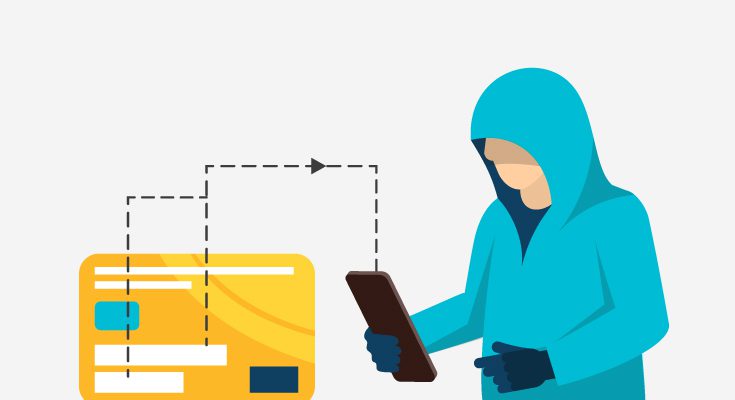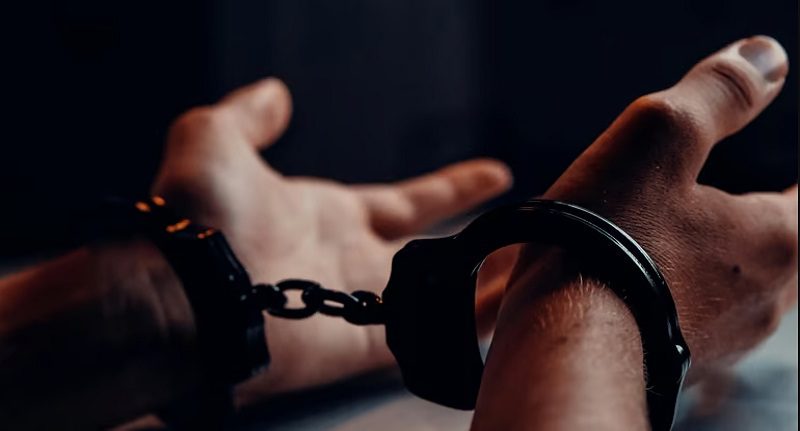Three Nigerians based in the United States have been sentenced to more than eight years in jail for defrauding the U.S. of $520,910. The convicts Kamaldeen Karaole, Stephen Olamigoke, and Johnson Omodusonu stole 168 debit cards belonging to beneficiaries of COVID-19 unemployment benefits.
In a statement revealed earlier this week by the United States Department of Justice, the trio carried out the fraudulent activity in 2020. To successfully execute their plot, they illegally obtained over 168 unemployment insurance (UI) claims belonging to other people.
Unemployment Insurance is a joint state and federal program in the U.S. that provides temporary financial assistance to workers who are involuntarily unemployed.

A U.S. Attorney, Tom Wheeler, while reacting to the case, explained that stealing unemployment benefits meant to help people survive during one of the worst crises in modern history is both heartless and criminal. He blamed the action on greed and demanded justice.
“These defendants exploited a system designed to support those in genuine need, and now they are being held accountable for their greed thanks to the diligent work of our federal partners and prosecutor,” he said.
Following their arrests, the trio were arraigned on different charges bordering on conspiracy and aggravated identity theft, among others.
The case was investigated by the Federal Bureau of Investigation, the U.S. Department of Labour-Office of Inspector General, and the U.S. Postal Inspection Service.
Also Read: Tingo Fraud: US fines Nigerian auditor Olayinka Oyebola $200,000 for cover-up.
How the fraud was orchestrated
According to the Department of Justice statement, the fraudulent activity took place between August and October 2020. The three US-based Nigerians, in collaboration with other suspects outside the U.S., stole 168 unemployment Insurance (UI) debit cards and associated PINs.
The cards were issued by the states of California, Arizona, and Nevada, and periodically loaded with benefits. The defendants, with their conspirators, used the stolen debit cards and passwords to file false unemployment benefits claims. Further investigations revealed that none of the cards belonged to the members of the conspiracy, as they were all in the names of real individuals.
To obtain the cards, the gang used the stolen personal identifiable information to file several false unemployment claims with various state workforce agencies. After succeeding, multiple withdrawals were made in a swift process.


The report revealed that 98 of the cards were used to withdraw cash from various ATMs in and around Indianapolis, the capital city of Indiana. In total, they completed 529 withdrawals, stealing $520,910 in benefits.
The stolen funds were intended to support U.S. citizens who were unemployed during the COVID-19 pandemic. During the period, several benefits were rolled out by the U.S. Federal and State governments to support both the employed, underemployed and unemployed individuals.
The judgement
Passing the judgment, U.S. District Judge James Patrick Hanlon charged Karaole on three counts of aggravated identity theft, conspiracy to commit access device fraud and access device fraud. Olamigoke and Omodusonu were each charged with two counts of conspiracy to commit access device fraud and access device fraud.
Kamaldeen Karaole, age 24, was sentenced to 51 months’ imprisonment and 2 years of supervised release, while Stephen Olamigoke, age 23, received 30 months’ imprisonment and 2 years of supervised release. Johnson Omodusonu, age 24, was sentenced to 24 months’ imprisonment and 2 years of supervised release.
In addition, the court ordered each defendant to pay a sum of $520,910 in restitution.


Upon completion of the jail term, the trio will be repatriated to Nigeria. The case is one of many by Nigerians involved in fraudulent activities, leading to deportation from the US.
In October 2023, two US-based Nigerians, Quazeem Owolabi Adeyinka and Ayodeji Jonathan Sangode, were sentenced to 26 months and 14 months in prison, respectively. In a conspiracy activity which occurred between June 2020 and July 2021, the convicts were found guilty of submitting fraudulent claims to get benefits during the COVID-19 pandemic.







